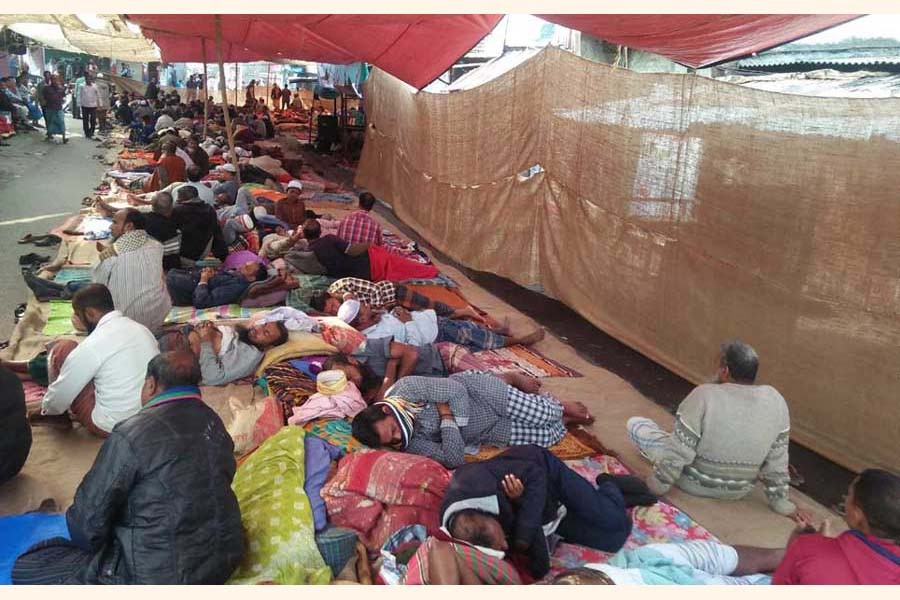
Published :
Updated :

KHULNA, Dec 30: Hundreds of jute mill workers in Khulna region were continuing their hunger strike unto death for the second consecutive day to press home their 11-point demand.
Sources said, the workers of eight jute mills in Khulna and Jashore, started their fast-unto-death hunger strike from 3:00pm yesterday (Sunday) at their respective mill gates for implementation of the wages commission.
At the beginning second day of the protest on Monday, the jute mill workers demonstrated on the Khulna-Jeshore highway. They are trying to press the government to accept their 11-point demand, including implementation of the wages commission and payment of regular wages.
About 50,000 workers of Star, Platinum, Crescent, Alim, Eastern, Daulatpur and Khalishpur jute mills in Khulna and JJI Jute Mills in Jashore took position in front of the mills. Apart from Jashore Carpeting Jute Mill, workers in Khulna joined the strike.
Alim Jute Mills CBA president Saiful Islam Litu said, "We sat on hunger strike from noon on Sunday (December 25). We will continue the programme until demands are met. If need be, I will not break my fast."
CBA and non-CBA Sangram Parishad Joint Convener Md Murad Hossian said, "We have been continuously assured by the government that our demands will be met. But the authorities failed to keep their promises, which is why we have started the hunger strike unto death again."
Platinum Jute Mill CBA President Sahana Sharmin said: "We do not want to protest in such a cold weather. We will go back to work as soon as they fulfill our demands."
The Khulna Metropolitan Police (KMP) has also taken a different approach to law and order, focusing on the programme of jute workers. The entrance of Khalishpur BIDC Road was closed by the police. Barricades has been set up at Khalishpur intersection and Kadamtala junction so that no heavy vehicles can get on the road. Only rickshaws, Easybikes, bicycles and motorcycles are allowed to enter the road.
Earlier, the workers had started hunger strike in front of their respective mill gates from December 10 to 13. They followed the programme for four days in the cold winter. During the programme, more than 200 workers became ill, while two workers died.
kanaimondal61@gmail.com


 For all latest news, follow The Financial Express Google News channel.
For all latest news, follow The Financial Express Google News channel.